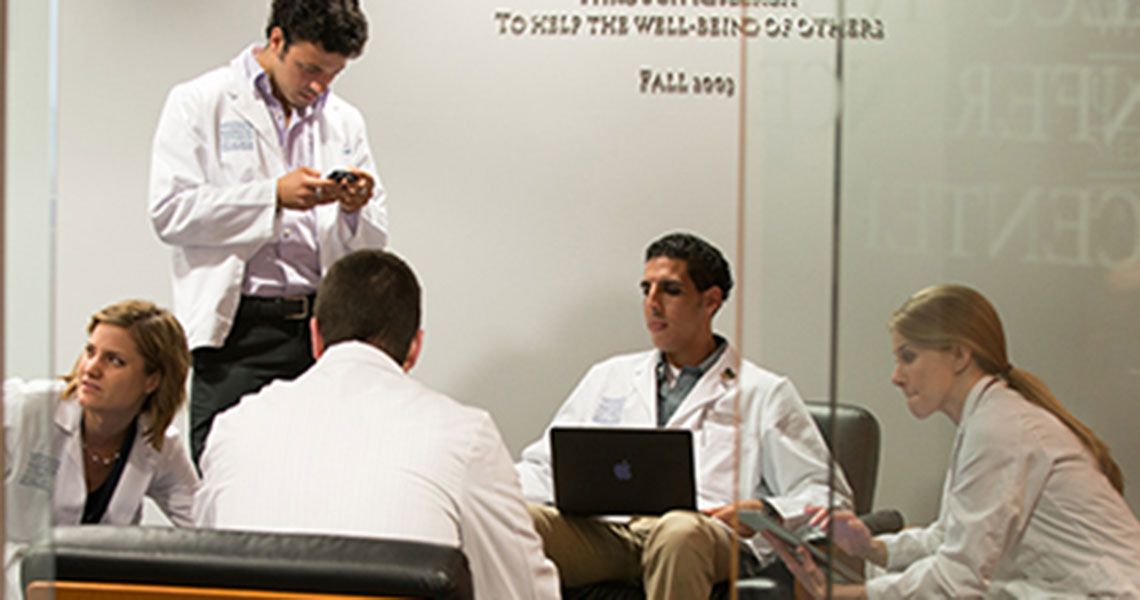For generations, M.D. candidates have received a white coat and a reflex hammer at the start of their medical education—the former being the universal symbol of the physician and the latter representing the hands-on clinical experiences ahead.
But much has changed in health care over the past decade, and faculty leaders at the George Washington University School of Medicine and Health Sciences believe medical education should continue to evolve as well.
That is why, beginning in fall 2014, each first-year GW medical student will also receive an iPad—a tool that is commonplace in today’s hospitals, allowing physicians to access electronic medical records and information on the web from their patients’ bedsides.
“The more comfortable students become using those tools, I think the better their ability to function as physicians in the 21st century is going to be,” said Katherine Kennedy, a professor of pharmacology and physiology who has experimented with iPad use in her classroom.
The addition of more technology in the classroom is part of bigger changes happening within SMHS.
Faculty members, led by Associate Professor of Medicine Matthew Mintz, are in the process of revising the medical curriculum in an effort to develop an enhanced M.D. program that reflects the challenges facing tomorrow’s health care professionals.
The early plans they’ve developed seek to provide more time for independent learning while emphasizing active-learning pedagogies and early clinical experiences.
One of the most significant changes to the curriculum will be a shortened and integrated preclinical curriculum. Currently, students take discipline-based basic science courses for two years before moving into clinic rotations, which involve direct patient care. The idea for the revised curriculum, according to Dr. Mintz, is to integrate the basic sciences with clinical sciences and start interacting with patients on ward rotations almost a half year earlier.
This change will allow students to have more direct contact with patients, while also leaving time for independent learning, research and other educational opportunities.
“We believe that students learn medicine best when they are directly in contact with patients,” Dr. Mintz said. “Early medical ward experience is a real benefit to the development of clinical skills and reasoning.”
While he does not consider technology to be “the be all and end all” of medical education, Professor of Pediatrics Bud Wiedermann said it is one tool that will help make the curricular revision successful. For the past year, Dr. Wiedermann has chaired an exploratory committee tasked by SMHS Dean and Vice President for Health Affairs Jeffrey Akman with developing a strategic plan for using technology in medical education.
After working closely with Dr. Mintz, Dr. Wiedermann’s committee decided that introducing iPads in the classroom would enhance students’ ability to think critically about what they are learning for future clinical application.
“It’s all about getting future physicians up to speed sooner,” Dr. Wiedermann said.
As of last December, nearly 30 faculty members who will be teaching first-year medical students in fall 2014 received iPads and are exploring new approaches to delivering content. iPads will be distributed to a second round of faculty members in the coming month.
Dr. Mintz said “the best possible scenario” for next year will be “the marriage of the iPad technology” with the revised curriculum.



